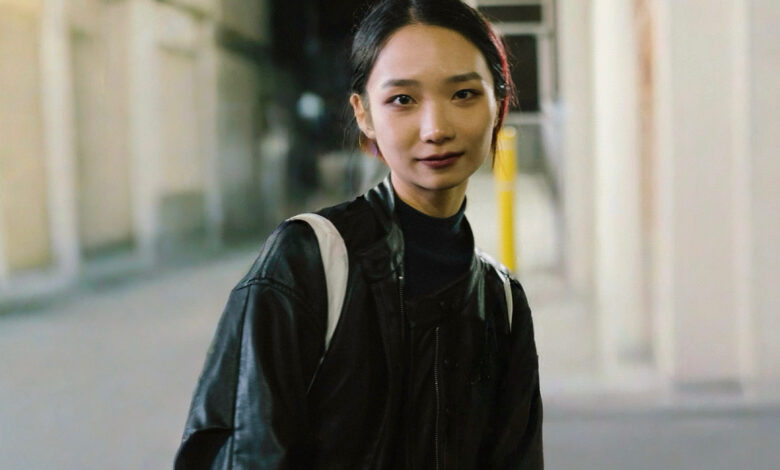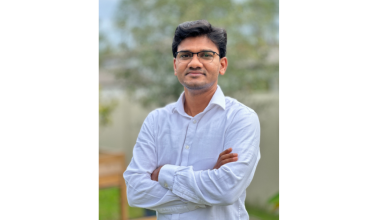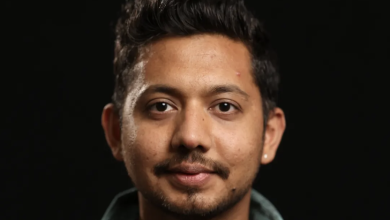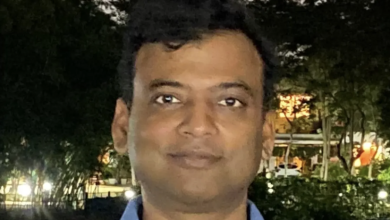
Originally from China and now based in Los Angeles, Yuwei Zhang is a filmmaker and writer whose work blends poetic visuals with emotionally resonant, character-driven narratives. Her latest short film One of Those Nights, premiered at the Oscar- and BAFTA-qualifying LA Shorts International Film Festival, adding to a festival run that has already spanned more than a dozen events worldwide. With an MFA in Narrative Directing from UCLA and current roles as a creative director and freelance mini-drama director, Zhang brings a unique lens to the fast-evolving relationship between art and technology.
In this conversation, she explores the profound ways AI is changing the filmmaking process, from lowering barriers to entry and sparking bold experimentation to challenging long-held ideas about what it means to create.
What do you see as the most transformative ways AI is influencing the creative process in filmmaking today?
AI is challenging and redefining what it means to create, while also opening the door for more people to participate in creation. I think of it as similar to the invention of the camera. Once the camera existed, you no longer needed to study painting for years in order to be a visual artist. But of course, that didn’t mean everyone who picked up a camera was an artist. It still depended on how you thought, what you wanted to express, and how you shaped your ideas.
In the same way, AI removes many of the technical and financial barriers that used to limit filmmaking, but it doesn’t replace the need for vision. What matters is not simply having access to the tool, but knowing how to use it to express something meaningful. That is where I see the most profound change: AI is making creation more accessible, while at the same time asking us to rethink what creativity itself means.
How are AI tools enabling filmmakers to expand their creative possibilities rather than simply streamlining production?
For me, the most exciting part of working with AI is the chance to experiment without fear. In the past, I often had to abandon ideas before even testing them, because the cost of failure was simply too high. With AI, I can try something bold, see it take shape, and then refine or discard it within hours.
The speed of trial and error has changed how I approach things creatively. I’m more willing to take risks, to explore unconventional directions, and to push my ideas further than I would have before. The process becomes less about protecting resources and more about discovery. For me, that is where AI truly expands creative possibilities.
In what ways can AI help personalize storytelling to better connect with different audiences and markets?
I believe the stories that connect most deeply with audiences always come from a personal place. That authenticity has to originate from the filmmaker, not from the technology. What AI can do is help bring those stories to life and make them resonate more widely. For me, that means using AI to shape the form of expression, whether it’s experimenting with visual language, adapting tone, or exploring cultural nuances, so that the heart of the story can reach people in different contexts.
Can you share examples where AI has inspired new visual languages or narrative structures that wouldn’t have been possible before?
One way AI has inspired me is through the back-and-forth I have with it. Sometimes I’ll throw in a couple of random references or ask it to brainstorm with me, and the results are often unpredictable. They’re not always things I can use directly, but that’s where it becomes interesting.
From that process, I’ve started to imagine visual languages that shift more fluidly between realism and abstraction, or narrative structures that feel more like memory rather than a traditional three-act arc. Those directions are born from engaging with AI in this iterative, experimental way, and I don’t think I would have arrived at them without the dialogue.
What are the biggest misconceptions about using AI in filmmaking and how do you address them?
I think the biggest misconception about AI in filmmaking is the assumption that it’s a perfect tool that simply executes whatever you ask of it. In reality, it always gives you its own interpretation of what it thinks you want. That means the results are never exactly what you imagine, and never fully under your control.
For me, that unpredictability is not a weakness but a creative strength. A lot of the most interesting moments come from those imperfections, like unexpected details, strange textures, or narrative turns that I wouldn’t have thought of myself. In that way, working with AI feels surprisingly similar to collaborating with human artists. It’s less about dictating an outcome and more about engaging in a dialogue, and that dialogue often leads to discoveries I couldn’t have planned.
How can AI-driven tools be integrated into commercial production without compromising artistic integrity or brand authenticity?
At this stage, the creative development in commercial production is still very much led by humans. AI may be involved in visualization or execution, but the foundation which includes the research, the conceptual thinking, and the emotional truth of the work, comes from human effort. That’s what guarantees artistic integrity and brand authenticity.
AI is most effective when it’s integrated as a supporting tool rather than the source of ideas. It can accelerate exploration, provide new visual directions, or help translate concepts into different formats. But the responsibility of ensuring that the story aligns with the brand’s values and feels authentic to the audience remains with the creative team. As long as that human-led foundation stays in place, AI can expand possibilities without compromising integrity.
Where do you see the balance between human creativity and AI automation in the future of narrative and commercial filmmaking?
I believe the balance will always start with human creativity. The core ideas, emotions, and stories come from people because only humans can bring lived experience and genuine perspective. AI can certainly help in the brainstorming stage, but its main role is in execution. It makes it faster and more affordable to test, prototype, and produce at scale.
For narrative filmmaking, that means I can devote more energy to imagination and storytelling while AI takes care of some of the technical barriers. For commercial work, it means brands can explore more directions and still stay true to their identity, because the creative foundation is human-driven.
What skills and mindsets will be most valuable for filmmakers who want to embrace AI as part of their toolkit?
I think one of the most valuable skills for filmmakers working with AI is the ability to be a strong critic. Because AI can generate so quickly, the real challenge is not in producing material but in evaluating it. That means being able to look at what the machine gives back, decide almost instantly if it works or not, and then give precise notes to push it closer to my vision.
That process requires a sharp eye, but also a mindset of openness. The best results often come from learning to recognize potential in unexpected outputs and then shaping those into something meaningful. So the key skill is less about mastering the technology itself, and more about developing a critical, flexible way of thinking that allows the filmmaker to guide AI rather than be overwhelmed by it.




